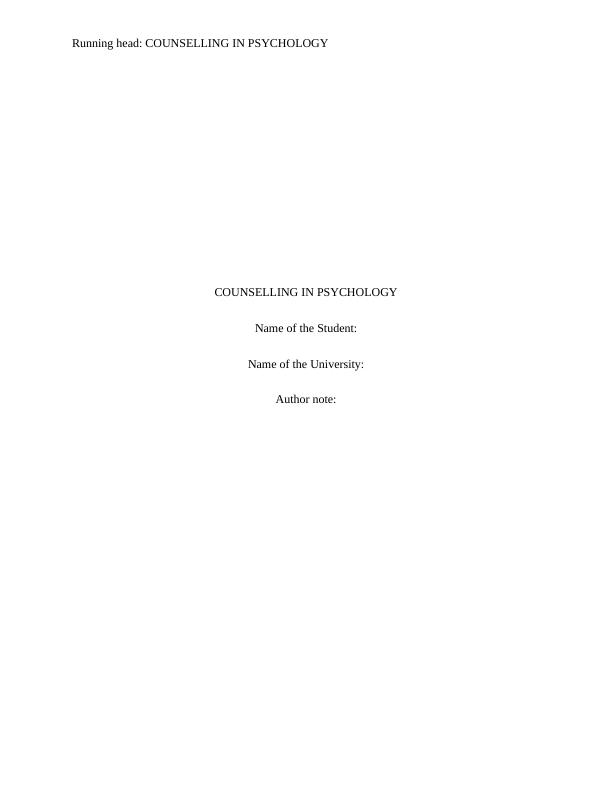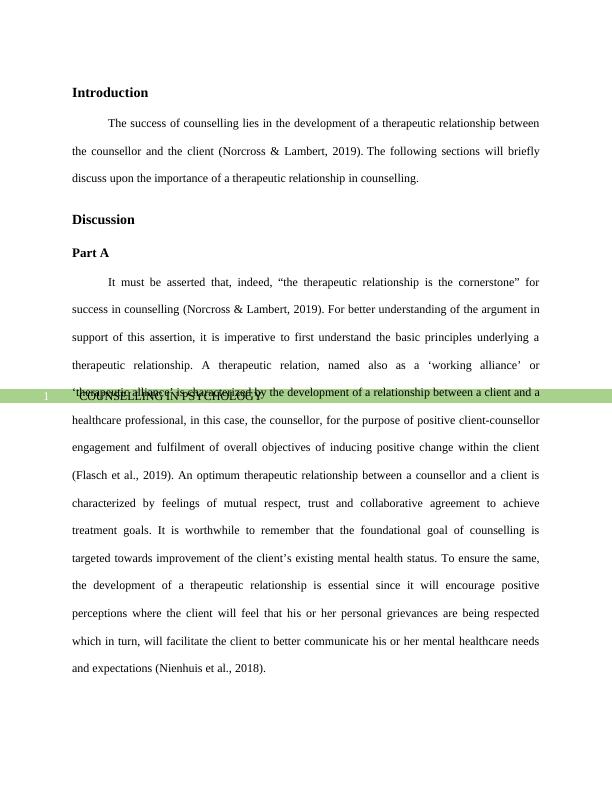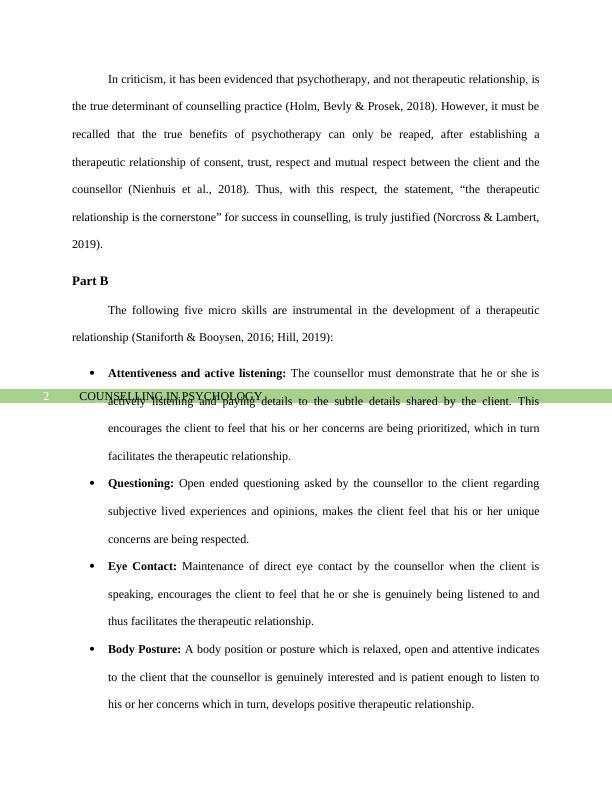COUNSELLING IN PSYCHOLOGY
Added on 2022-09-09
7 Pages1419 Words32 Views
End of preview
Want to access all the pages? Upload your documents or become a member.
The Counselling Relationship | Assessment
|7
|1718
|20
Ways Counsellor's Qualities and Counselling Relationship Contribute to Successful Outcomes in Therapy
|9
|2017
|86
Important Qualities of a Therapist: Congruence, Unconditional Positive Regard, Empathetic Understanding, Multicultural Awareness, and Self-Reflection
|12
|2485
|249
RUNNING HEAD: PSYCHOLOGY 0 PSYCHOLOGY 1 Psychology 8/5/2019 Summary
|9
|2624
|126
Eurasian Journal of Biosciences
|8
|2018
|16
Comparison of Person Centred, Transactional and Existential Therapies in Counselling
|7
|2016
|380



